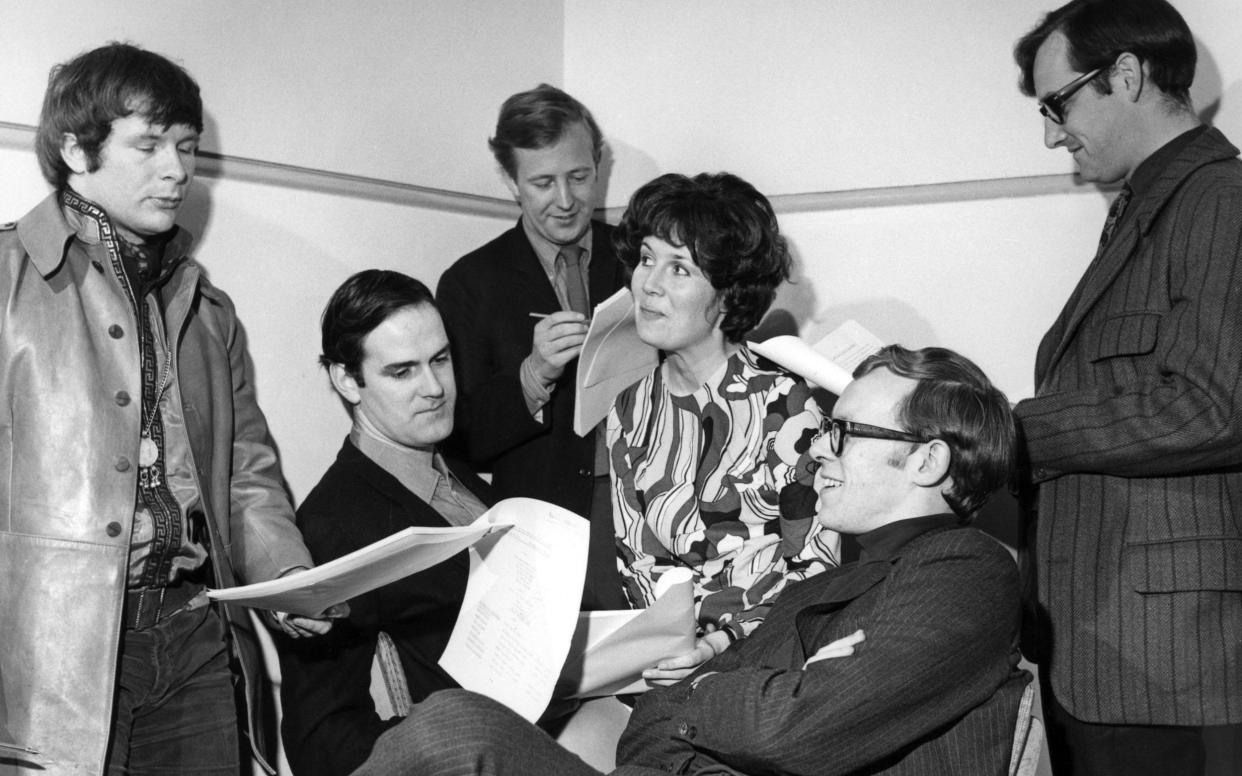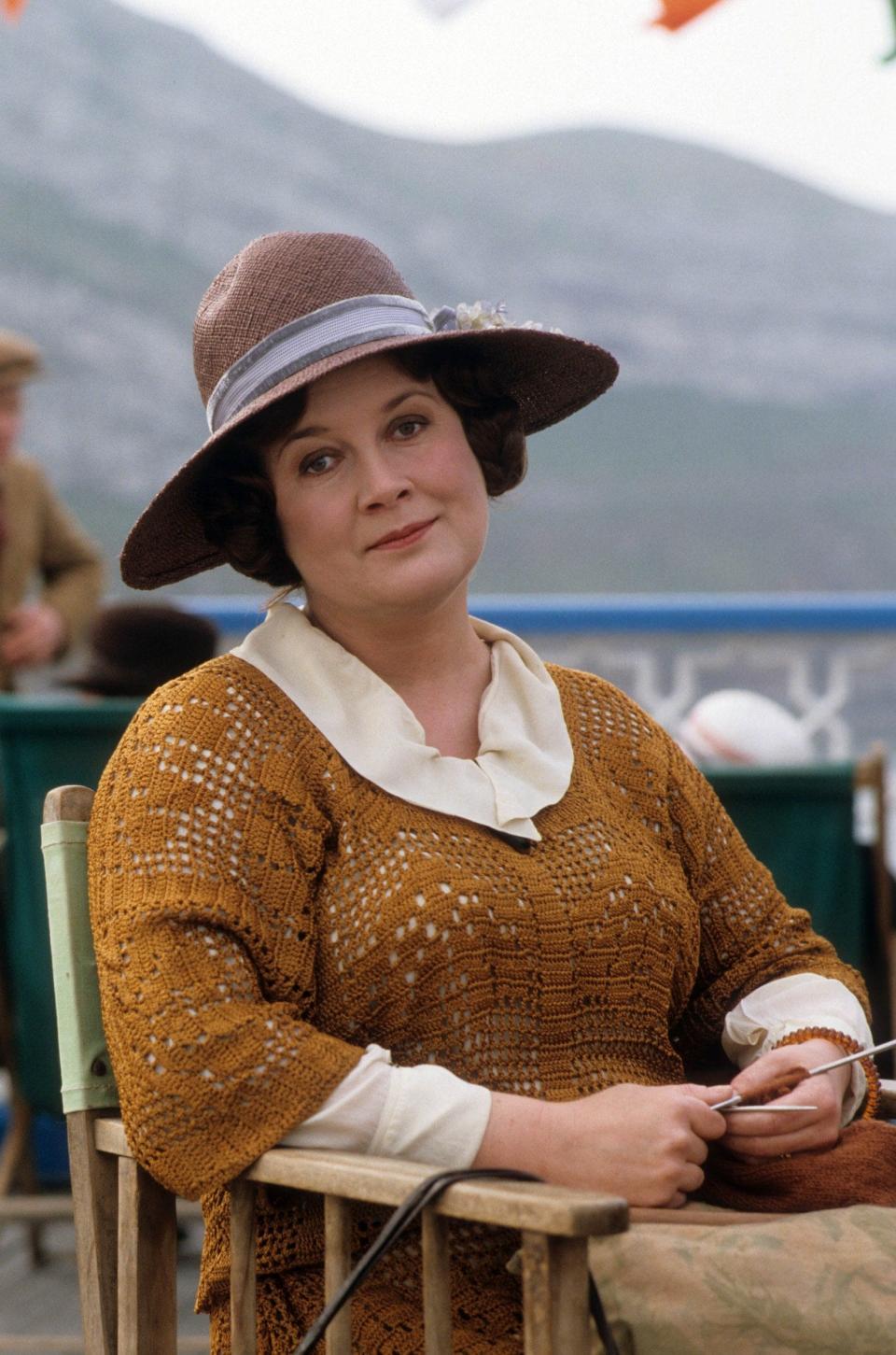Jo Kendall, actress who made her name on the anarchic radio sketch show I’m Sorry I’ll Read That Again – obituary

Jo Kendall, the actress, who has died aged 81, blazed a trail for women in radio comedy when she joined I’m Sorry I’ll Read That Again, a ribald weekly fixture on the Light Programme and later Radio 4 between 1965 and 1973.
She was the only female member of the cast that otherwise comprised ex-public schoolboy members of the so-called Oxbridge comedy mafia, John Cleese, Graeme Garden, Bill Oddie, Tim Brooke-Taylor and David Hatch.
The programme’s “inventiveness and exuberance – and its delight in really awful old jokes for their own sake – has made it one of the radio shows in the public memory”, noted one comedy historian. For thousands of enthralled listeners, it became sometime of a cult.
Named after the default newsreader’s apology and billed as “a radio custard pie”, it derived from the Cambridge Footlights revue called Cambridge Circus, which transferred successfully to the West End stage. Quick-witted and versatile, Jo Kendall was the sole female voice in the anarchic radio sketch show, which also carried echoes of The Goons with silly voices, mild smut and terrible puns (“My name’s Hanger-Ending… Cliff Hanger-Ending”).
Recorded weekly in front of a live studio audience at the Playhouse Theatre, London, it soon attracted a devoted and rowdy youth following. Barry Took described it as “a young person’s Round the Horne, a kaleidoscope of funny voices, catchphrases and innuendo revolving at breakneck speed and with a complete disregard for logic”.
Jo Kendall appeared in serials with outlandish titles such as “The Curse of the Flying Wombat” and “Professor Prune and the Electric Time Trousers”. She and Cleese made regular appearances together as a married couple, John and Mary, in sketches that Cleese wrote for them.
“Mary: John – once we had something that was pure, and wonderful, and – good… what’s happened to it?
“John : You spent it all.”
There was a running gag about a mythical pirate station, Radio Prune, which broadcast Prune Playhouse, Jo Kendall memorably taking the part of the buxom heroine in a production of Moll Flounders. Another edition featured a trailer for an evening’s minority broadcasting, which recommended Oculists’ Question Time and Suddenly It’s T S Eliot, and urged listeners to put their feet up “because Friday Night Is Cost-Analysis Night”.
The programme’s original producer Humphrey Barclay believed she was underrated as an actress and considered her the girl to cast. A riotous show, often undisciplined and self-indulgent, I’m Sorry I’ll Read That Again also offered Jo Kendall the chance to contribute her own comedy material, holding back the tide of sexist jokes that were the show’s stock-in-trade.
In 1971 Jo Kendall teamed with Graeme Garden against Tim Brooke-Taylor and Bill Oddie in the first pilot of I’m Sorry I Haven’t a Clue (the title an obvious nod to I’m Sorry I’ll Read That Again), in which she and Garden had to sing The Sound of Music as a pair of sheep.

In the first broadcast edition, chaired by Barry Cryer because Humphrey Lyttelton was ill, Cryer introduced her as Jo “Hello, dear, do you want to be naughty” Kendall. The teams had to introduce latecomers to the Plumbers’ Ball (“Mr and Mrs J Soir and their son P Soir”).
In her eagerness to raise a laugh in the testosterone-fuelled Clue arena, Jo Kendall often delivered “streams of saucy verbal incontinence” (as one historian of the show put it) “which it’s impossible to dislike, even if the boys talked over her all the time, and even occasionally stole her gags on mic”. She left the show at the end of the first series and there has been no permanent female team member since.
On Radio 4 Jo Kendall appeared in The Burkiss Way (1976-80), another comedy series produced by David Hatch, with Nigel Rees, Chris Emmett and Fred Harris. The writers Andrew Marshall and David Renwick were fans of hers from I’m Sorry I’ll Read That Again, and the show offered her a forum for her pitch-perfect mimicry, ranging from children to grandmothers, lisping girls, Mrs Dale (“I’m worried about Jim”) and with many a minx thrown into the mix.
She was born Josephine Mary Robinson on February 17 1940, at Cleethorpes, Lincolnshire. Her father left when she was a small girl and her mother remarried. Educated at the Collegiate School, Leicester, she moved to London in 1960 and studied speech and drama at the Royal Academy of Music and the Central School of Speech and Drama, and held diplomas from both, before moving to Cambridge and changing her name to Kendall.

She was Desdemona in a production of Othello at the ADC Theatre, Cambridge, in 1962, and after training as a BBC studio manager was teaching at a local girls’ school when she auditioned for Humphrey Barclay and joined the cast of Cambridge Circus (Lyric), the Cambridge University revue, alongside Graham Chapman, John Cleese, Bill Oddie, Tim Brooke-Taylor, David Hatch and Chris Stuart-Clark.
On tour in New Zealand, the freezing midwinter weather prompted complaints to the manageress of their temperance hotel. “If you’re cold, dear,” she was told, “run up and down the corridor.” When the show finished in New York, she returned to London to continue her acting career before joining the cast of I’m Sorry, I’ll Read That Again.
On television she appeared in At Last The 1948 Show (ITV, 1967) and the wacky Broaden Your Mind (BBC Two, 1968). She returned to straight acting, as Anne Stanhope in the Emmy-winning The Six Wives of Henry VIII (BBC Two, 1970) and as Adelaide Palliser in The Pallisers (BBC Two, 1974).

She was Peggy Skilbeck (née Sugden) in Emmerdale Farm, speaking the first ever line of the programme in 1972 – “Matt. Who’s she?” – and had a recurring part in Grange Hill in the 1980s. She appeared as the matron, Miss Biggs, in the film version of Scum (1979), in the 1992 film Howard’s End, as a publican’s wife in The Remains Of The Day (1993) and in The Bill and Peak Practice on television.
She took part in a reunion special edition of I’m Sorry, I’ll Read That Again in 1989 and retired to her cottage in Suffolk in 2007. On hearing of her death, John Cleese, who remembered her as fun, relaxed, and “probably the first young woman with whom I felt (almost) at ease”, concluded his tribute with “RIP Jo Ke”.
Jo Kendall was unmarried.
Jo Kendall, born February 17 1940, died January 29 2022

 Yahoo News
Yahoo News 
